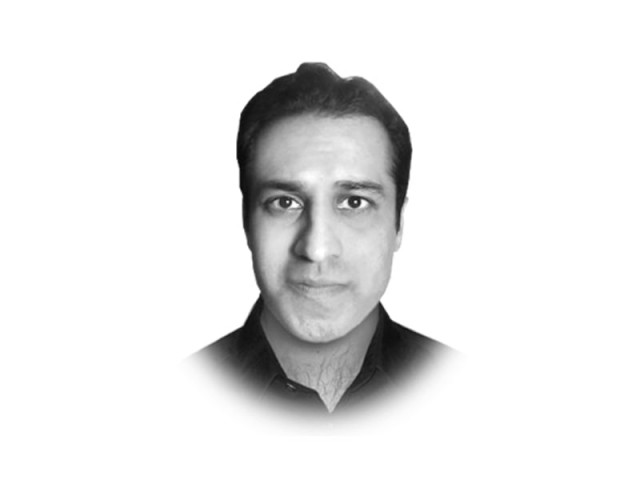Death by indecision, death by incoherence
The pro-war camp has yet to recognise how much state violence fuels the narrative of the TTP and its supporters.

The writer is an adjunct scholar at the Middle East Institute in Washington, DC and president of Vizier Consulting, LLC. He tweets @arifcrafiq
This is no easy decision. The great terror that has haunted Pakistan for much of the past decade cannot be wished away. And it cannot be resolved on an op-ed page or a one-hour talk show. It requires a thorough thought process that, with all due respect, has been lacking in Pakistan.
Those who advocate strictly dialogue ignore both, the enemy’s ideological motivations and its strategic use of talks to strengthen and spread. The most vocal of the pro-dialogue lot, Imran Khan, remains fixated on the army’s initial forays into Fata post-9/11. But the phenomenon of takfiri jihadism in Fata has evolved considerably since those initial years of the war on terror. The years of the Taliban rule in Afghanistan have posthumously given birth to an ideal that scores of Pakistani militant groups would like to realise in Islamabad. The Tehreek-e-Taliban Pakistan (TTP) and their ilk have little regard for the country’s Constitution.
Both Abu Zar Azzam, a TTP-linked preacher, and Junood alHafsa chief Asmatullah Muawiya — who has publicly welcomed talks with the Sharif government — have compared the Pakistani Constitution with urine. While Muawiya has been portrayed as a peacemaker, he’s nothing of the sort. He has said that his war against the Pakistani state will continue till Islamabad “leaves America’s war and implements Islamic laws”. The TTP showed its warped version of Islamic law as it spread throughout the Malakand Division in 2009.
Naive advocates of dialogue lose sight of how they are playing into the TTP’s hands. In targeting mainly Pakistan’s secular parties in the lead up to the elections, the TTP aimed at furthering the wedge within the civilian political class. With that mission accomplished, the TTP — and Muawiya as well on his own parallel track — now seek to foment a divide between the centre-right and religious political parties and the military. Setting aside the hotly contested issue of who violated the previous peace accords, there is ample evidence of the TTP’s deceit. Recall that it was Hakimullah Mehsud who shot the 69-year-old Colonel Imam in the head point blank as a video camera recorded. And as the TTP reached out to civilian parties, early last year, for peace talks, both Azzam and Ehsanullah Ehsan publicly called for Baloch separatists to join hands with them and fight Islamabad.
Meanwhile, the pro-war camp has yet to recognise how much state violence fuels the narrative of the TTP and its supporters. Violence — especially illegitimate violence — does tend to beget more violence. Advocates of war against the TTP also offer little insight into the civilian component of counterinsurgency and counterterrorism. The Pakistan Army can’t stay in Swat forever. And the civilian governments — after hundreds of terrorist attacks since 9/11 — have to be able to, at the very least, maintain the CCTV systems installed in major cities (some don’t even have any). Finally, there has to be recognition of the limits of military operations — that Pakistan’s internal instability is deeply tied to what happens in both Afghanistan and India. Pakistan will face significant externalities if Afghanistan begins to unravel next year or Narendra Modi is elected and pursues a more aggressive foreign policy. Those who advocate war will have to decide to what end, and those who call for dialogue, will have to explain what they are willing to give up for peace. Above all, together they will have to decide what country they want — a country that reaches its Millennium Development Goals or is pulled back several millennia by a group of semi-educated murderers.
Published in The Express Tribune, October 2nd, 2013.
Like Opinion & Editorial on Facebook, follow @ETOpEd on Twitter to receive all updates on all our daily pieces.














COMMENTS
Comments are moderated and generally will be posted if they are on-topic and not abusive.
For more information, please see our Comments FAQ